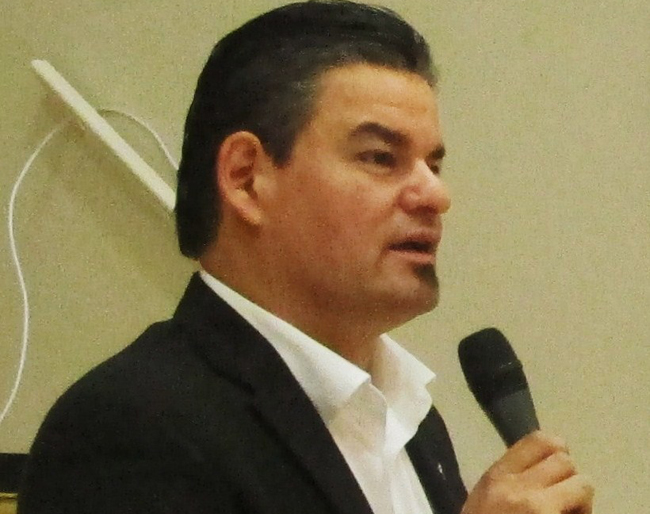Anishinabek insist on rightful share of mining revenues
SUDBURY – Anishinabek Nation citizens understand they have the right to share in the wealth generated by extraction of natural resources from their traditional territories. The only thing that needs to be resolved is how much.
Lake Huron Regional Grand Chief Isadore Day, Windawtegowinini, provided some pertinent numbers to 25 participants in a Union of Ontario Indians Mining Workshop Nov. 19-20. He asserted that Anishinabek Nation citizens have a treaty right to share in Ontario’s $11 billion mining industry.
“We have determined that 60% of mining resources in Ontario are located on traditional lands and currently we receive no taxes or benefits from mining on our traditional to treaty territory,” said Chief Day, Serpent River First Nation. “Municipalities get 15 to 22% of total taxation revenue from mining while First Nations get nothing.”
Deputy Grand Chief Glen Hare further advocated for meaningful Anishinabek participation in the mining industry as required by Section 35 Constitutional rights and Supreme Court rulings about consultation and accommodation of First Nations rights.
“We need to put our foot down. Mining companies need to work with us or go home. We have nothing to lose.”
The participants made unanimous recommendations in the following areas:
- Assertion of Anishinabek Jurisdiction over mining in compliance with Section 35;
- Requirement for governments and mining and exploration companies to share the revenues from resources extracted from Anishinabek territories;
- Necessity for government and mining companies to practice environmental stewardship on Anishinabek lands;
- Urgent requirement for government to fund capacity development at the local level in mining;
- Need for government and mining companies to recognize Anishinabek potential for employment opportunities, from entry level to senior management;
- Critical requirement for MTO and the Anishinabek Nation to negotiate a “first right of refusal” for First Nations with aggregate on pits and quarries located in the area where roads are being constructed; and
- Need for Anishinabek Nation communities to receive aggregate fees and levies at the same rate as municipalities.
Participants emphasized the need for Anishinabek to have a rightful share of revenues generated from mining the resources on traditional territories, from all levels of government and from mining companies extracting, processing and exporting them. They also recommended that they need the authority to tax mining and exploration companies directly on the resources that they extract and process from traditional lands.
It was also agreed that the Anishinabek Nation needs to explore options to allow individual First Nations to levy property taxes on utilities (hydro, telephone, gas and oil pipelines, radio transmitters, etc.) crossing First Nations land. This would produce a steady revenue stream to permit First Nations to improve their economies and the living conditions of their citizens. The Oosoyoos, Kamloops and Westbank First Nations tax directly and have improved their economies significantly.



